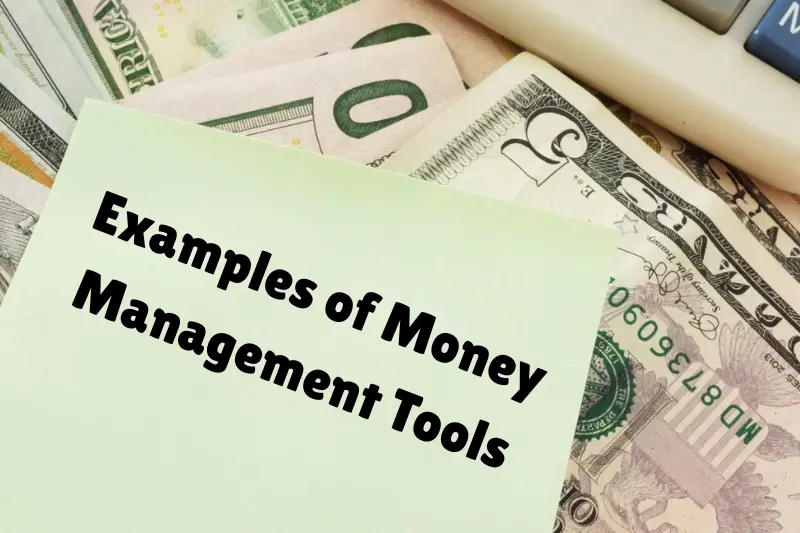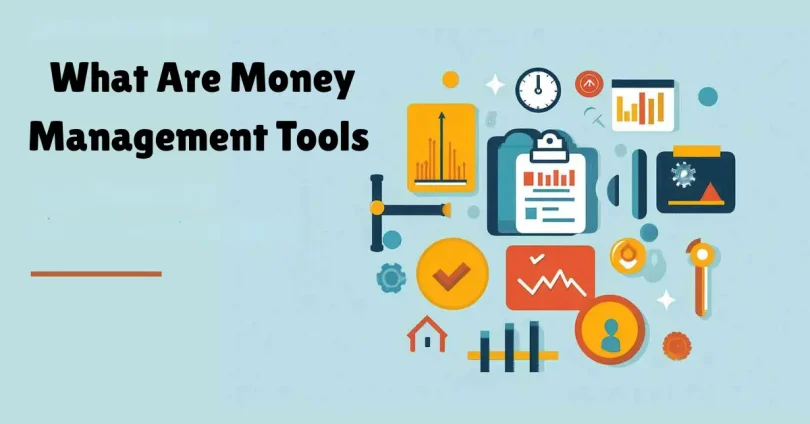Let’s be honest—keeping track of money isn’t always simple. Imagine this: Sarah is a freelance graphic designer juggling multiple clients, invoices, project deadlines, and everyday expenses. Some months, payments arrive late, while other months, unexpected bills pile up. Even though she’s earning well, she constantly feels like her finances are slipping through the cracks.
This is where the question arises—what are money management tools and how can they help? Simply put, they act like a personal financial assistant, making it easier to track income, manage expenses, set budgets, and stay organized. Instead of feeling overwhelmed, tools like these give Sarah (and anyone else) more clarity and control over their money.
So, What Are Money Management Tools?

At their core, money management tools are digital platforms, apps, or software designed to help individuals and businesses track, plan, and optimize their finances.
Think of them as your personal financial sidekick:
- They keep you on top of your spending.
- They track every dollar flowing in and out.
- They help you stay organized with invoices, bills, and savings goals.
- And most importantly—they free up your time and reduce financial stress.
In simple terms, the intent of money management tools is to:
- Save you time by automating financial tasks you’d normally do manually.
- Provide insights into your money habits and patterns.
- Guide decision-making so you can grow instead of just survive.
- Reduce stress by keeping everything in one clear, manageable system.
Instead of drowning in spreadsheets or chasing receipts, you can finally gain control and clarity over your money.
You may also like to read this:
Active Investing Vs Passive Investing: Which Strategy Wins?
What Is Wealth Building? Guide To Financial Freedom
7 Types of Wealth Building Strategies You Must Know
10 Proven Steps on How To Build Wealth From Nothing In 2025
Why Financial Discipline Matters For Wealth | 7 Key Benefits
12 Wealth Building Habits of Successful People 2025
Why Are Money Management Tools Important?
Now, you might be wondering: “Do I really need a money management tool? Can’t I just use Excel or write things down?”
The truth is, while spreadsheets and manual tracking can work, they’re time-consuming, prone to errors, and not scalable. If you miss logging one expense or underestimate your monthly budget, it could spiral into bigger financial issues.
Here’s why money management tools are a game changer:
- Automated Expense Tracking
No more guessing where your money went—these tools automatically track transactions from your bank accounts, credit cards, or invoices. - Tax Planning Made Easy
Instead of panicking during tax season, your finances are already organized with clear reports. - Cash Flow Forecasting
For businesses, predicting when money will come in (and go out) is critical. Tools help you plan ahead so you don’t run into dry spells. - Smart Budgeting
Whether it’s saving for a vacation or scaling your startup, budgeting features help you prioritize what really matters. - Debt Management
Some tools calculate loan interest, repayment schedules, and even suggest strategies to get debt-free faster.
In short: they turn financial chaos into clarity.
Examples of Money Management Tools

There isn’t a one-size-fits-all solution—different tools cater to different needs. Here’s a breakdown of popular categories:
- Budgeting Apps
- Examples: Mint, YNAB (You Need a Budget)
- Best for individuals who want to control spending, track savings, and hit financial goals.
- Examples: Mint, YNAB (You Need a Budget)
- Business Finance Software
- Examples: QuickBooks, FreshBooks, Xero
- Ideal for small businesses and freelancers to manage invoicing, payroll, taxes, and reporting.
- Examples: QuickBooks, FreshBooks, Xero
- Investment & Wealth Trackers
- Examples: Personal Capital, Empower
- Perfect for investors who want a bird’s-eye view of portfolios, retirement accounts, and net worth.
- Examples: Personal Capital, Empower
- Cash Flow Forecasting Tools
- Examples: Float, Pulse
- Designed for growing businesses to anticipate financial challenges and plan ahead.
- Examples: Float, Pulse
- Debt Management Calculators
- Examples: Bankrate’s debt payoff calculator, Snowball tools
- Useful for anyone juggling loans or credit cards, helping you understand payoff timelines.
- Examples: Bankrate’s debt payoff calculator, Snowball tools
Who Should Use Money Management Tools?
The beauty of money management tools is that they’re not limited to one group of people. If you deal with money in any capacity, you can benefit. Let’s break it down:
- Small Business Owners – Keep track of expenses, cash flow, payroll, and taxes without hiring a full-time accountant.
- Freelancers & Gig Workers – Manage irregular income, track client invoices, and avoid payment delays.
- Individuals & Families – Create budgets, monitor household expenses, and save for big goals like vacations, education, or retirement.
- Startups – Reduce financial errors in the early stages, where every decision counts.
In short: If you earn, spend, save, or invest money (which is basically everyone), these tools can make your life easier.
Benefits of Using Money Management Tools
Now that you know what are money management tools and why they matter, let’s dive into the specific benefits they bring to the table.
- Time Savings
Manual financial tracking eats up hours every week. Tools automate those repetitive tasks, giving you more time to focus on growth, family, or even rest. - Better Decision-Making
With clear insights and visual dashboards, you can instantly see where money is going and where adjustments are needed. This helps avoid costly mistakes. - Reduced Stress & Peace of Mind
Knowing your finances are organized brings huge relief. Instead of worrying about missing bills or unexpected cash crunches, you can feel confident. - Accessibility & Convenience
Most modern money management tools are cloud-based or app-driven. That means you can access your financial data anytime, anywhere—even on the go. - Scalability
As your income grows or your business expands, these tools scale with you. Whether it’s handling more invoices or tracking bigger investments, they adapt easily.
Common Features You’ll Find in Money Management Tools
Different tools offer different strengths, but most share some common features:
- Expense Categorization – Automatically sorting your spending into categories like food, rent, travel, or utilities.
- Budget Creation & Monitoring – Set spending limits and track progress in real-time.
- Goal Setting – Save toward goals like retirement, debt repayment, or vacations.
- Reporting & Analytics – Visual charts that show spending trends, income patterns, and savings growth.
- Integrations – Syncing with banks, payment processors, or accounting platforms for seamless updates.
- Reminders & Alerts – Notifications for bill due dates or overspending warnings.
These features turn financial management into something proactive instead of reactive.
Challenges of Not Using Money Management Tools
To highlight the importance even more, let’s flip the coin: what happens if you don’t use money management tools?
- Missed Payments – Without reminders, you may pay bills late and damage your credit score.
- Inaccurate Budgets – Manually tracking often leads to errors, making your budget unreliable.
- Stress & Burnout – Constantly worrying about money drains your energy and focus.
- Missed Growth Opportunities – Without clear insights, you might overlook ways to save or invest effectively.
In short, skipping money management tools can cost you more than just money—it can cost you peace of mind.
How to Choose the Right Money Management Tool
With so many options available, you might be wondering: “Which tool is best for me?” The answer depends on your needs. Here are some tips:
- For Personal Finances: Choose a budgeting or expense-tracking app like Mint or YNAB.
- For Freelancers: Go with tools like FreshBooks or Wave that handle invoicing and irregular income.
- For Small Businesses: Opt for accounting software like QuickBooks or Xero with strong reporting features.
- For Investors: Use platforms like Empower or Personal Capital to track wealth and portfolios.
- For Debt Management: Try online calculators or debt snowball apps to stay disciplined.
Before choosing, ask yourself: Do I need budgeting, forecasting, debt repayment, or business-level reporting? The right answer will point you to the best tool.
Final Thoughts
By now, you should have a crystal-clear understanding of what are money management tools and why they’re so valuable. These digital solutions are more than just apps—they’re financial partners that bring organization, clarity, and control into your life.
Their intent goes beyond tracking numbers: they’re designed to save you time, reduce stress, and empower you with insights that help you grow financially—whether that means scaling your business, paying off debt, or reaching long-term goals like retirement.
So the next time you feel overwhelmed by finances, remember this: you don’t have to do it alone. With the right money management tools, you can transform your financial habits, make smarter decisions, and finally move from chaos to clarity.
FAQs
1. What are money management tools?
Money management tools are digital platforms, apps, or software that help individuals and businesses track, organize, and optimize their finances. They automate tasks like budgeting, expense tracking, invoicing, debt management, and cash flow forecasting to save time and reduce stress.
2. What is the purpose of money management tools?
The main purpose of money management tools is to provide financial clarity. They help you understand where your money is going, keep track of expenses, plan budgets, and make smarter financial decisions. For businesses, they also assist with tax preparation, payroll, and forecasting.
3. Why are money management tools important?
Money management tools are important because they reduce the risk of financial errors, save time, and provide accurate insights. Without them, many individuals and businesses struggle with missed payments, disorganized budgets, and cash flow issues.
4. What are some examples of money management tools?
Examples of popular money management tools include:
Budgeting Apps – Mint, YNAB
Business Finance Software – QuickBooks, FreshBooks, Xero
Investment Trackers – Personal Capital, Empower
Cash Flow Tools – Float, Pulse
Debt Calculators – Bankrate’s payoff calculator, debt snowball apps
5. Who should use money management tools?
Everyone can benefit from money management tools:
Individuals & families looking to budget and save
Freelancers & gig workers handling irregular income
Small businesses needing help with payroll, invoicing, and taxes
Startups that want to avoid early-stage financial mistakes




